Democracy, a concept that lies at the heart of modern governance systems, has a rich and complex history that spans thousands of years. From the ancient city-state of Athens to the far-reaching corners of the globe, the idea of democracy has evolved and transformed through various political, social, and intellectual movements. This article delves into the origins of democracy, tracing its roots from the birthplace of democracy in Ancient Athens, examining its influence on the Roman Republic, exploring its emergence in Medieval Europe, highlighting its status as a political ideal during the Enlightenment, and delving into its modern manifestation in the American Revolution. We will also explore the global spread of democracy in the 19th century and beyond, while acknowledging the challenges and criticisms it faces. Join us on a journey through time as we unravel the intricate tapestry of democracy’s origins and its enduring significance in the modern world.
Contents
- Ancient Athens: The Birthplace of Democracy
- Roman Republic: The Influence of Direct Democracy
- Medieval Europe: The Emergence of Representative Democracy
- The Enlightenment: Democracy as a Political Ideal
- The American Revolution: Democracy in Modern Governance
- 19th Century and Beyond: The Global Spread of Democracy
- Challenges and Criticisms to Democracy
- Conclusion
-
Frequently Asked Questions
- 1. How did democracy emerge in Ancient Athens?
- 2. What were the key features of Athenian democracy?
- 3. Who were considered citizens in Ancient Athens?
- 4. How did the reforms of Solon contribute to the establishment of democracy?
- 5. How did Pericles contribute to the development of Athenian democracy?
- 6. Was Athenian democracy inclusive?
- 7. How did Athenian democracy influence modern democratic systems?
- 8. What was the significance of the Assembly in Athenian democracy?
- 9. Were there limitations to democracy in Ancient Athens?
- 10. Why is the birth of democracy in Ancient Athens significant?
- References
-
Frequently Asked Questions
- 1. How was democracy born in Ancient Athens?
- 2. What role did the Roman Republic play in the development of democracy?
- 3. When did representative democracy first emerge in Medieval Europe?
- 4. How did the Enlightenment shape the concept of democracy?
- 5. What impact did the American Revolution have on democracy?
- 6. How did democracy spread globally in the 19th century and beyond?
- 7. What are some of the challenges to democracy?
- 8. Is democracy the only valid form of government?
- 9. What are some criticisms of democracy?
- 10. Can democracy adapt to the challenges of the modern world?
- References
- Read More
Ancient Athens: The Birthplace of Democracy
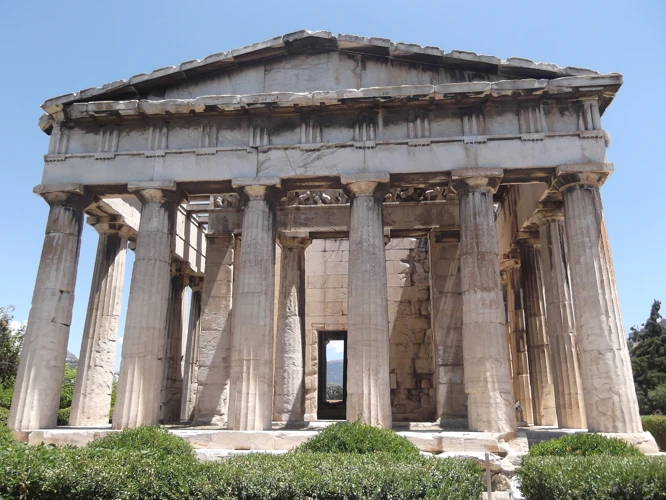
In Ancient Athens, the seeds of democracy were planted, giving rise to a revolutionary form of governance that would shape the course of history. The birthplace of democracy can be traced back to the 5th century BCE, where the citizens of Athens participated directly in the decision-making process of their city-state. Known as the “demos,” the Athenian citizens had the power to vote, propose laws, and serve on juries. The establishment of the world’s first democratic system in Athens can be attributed to several key factors. First, the reforms of the statesman Solon in the 6th century BCE laid the foundation for democratic principles by introducing reforms that expanded political participation. These reforms paved the way for the establishment of the Council of 500, a governing body composed of representatives from different social classes. This format provided a platform for the citizens to voice their opinions and influence the direction of the city-state. Another significant figure in the development of Athenian democracy was Pericles. Under his leadership, Athens experienced a period of prosperity and cultural flourishing, known as the “Golden Age.” Pericles introduced measures to strengthen democracy, such as paying salaries to public officials, which allowed citizens from all social classes to participate in public affairs. The Assembly, where citizens gathered to debate and vote on important issues, became the cornerstone of Athenian democracy. However, it is important to note that this democracy was not all-inclusive. Only adult male citizens who were born in Athens and had completed military service were considered full citizens, excluding women, slaves, and foreign residents from the political process. Nonetheless, the birth of democracy in Ancient Athens marked a landmark moment in history, laying the groundwork for future democratic systems to come. The ideas and principles that took root in this ancient city continue to shape modern conceptions of governance and citizen participation.
Roman Republic: The Influence of Direct Democracy
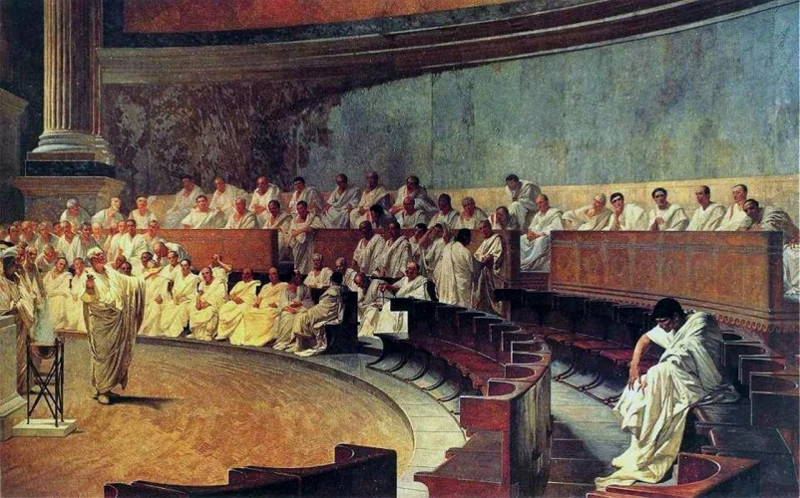
The Roman Republic, often hailed as one of the greatest empires in history, played a crucial role in shaping the evolution of democracy. While not a pure democracy like Ancient Athens, the Roman Republic was heavily influenced by democratic principles and the idea of citizen participation in governance. The Roman Republic operated under a system of direct democracy, where citizens had the power to vote and participate directly in decision-making processes. This was especially evident in the Comitia Tributa, an assembly where Roman citizens could vote on legislative matters and elect officials. The citizens were organized into different tribes, and each tribe had an equal vote, ensuring a sense of fairness and representation. Roman citizens had the right to express their opinions in open fora, engaging in political debates and influencing public opinion. The concept of checks and balances, which is a fundamental principle of democracy today, can be traced back to the Roman Republic. The Roman Senate, composed of elected officials, acted as an advisory body and had the power to veto decisions made by the executive branch. This system of balances ensured that no single individual or group could monopolize power, promoting democratic ideals of accountability and distribution of authority. However, it is important to note that the Roman Republic was not without its flaws. Only male citizens belonging to the upper social classes had full political rights, while women, slaves, and foreigners were excluded from the decision-making process. Nonetheless, the influence of direct democracy in the Roman Republic laid the foundation for democratic systems to come, inspiring future generations to embrace the idea of citizen participation and representation in governance.
Medieval Europe: The Emergence of Representative Democracy
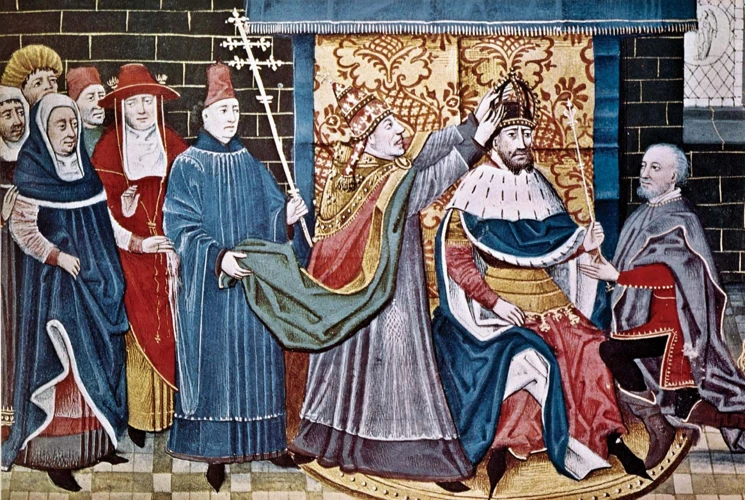
During the medieval period in Europe, the concept of democracy took on a new form with the emergence of representative democracy. This shift was driven by the changing social and political landscape of the time. As feudal systems began to weaken, towns and cities gained more prominence, leading to the rise of urban centers with growing populations. In these growing urban communities, guilds and merchant associations played a vital role in shaping local governance. These organizations represented the interests of various trade and craft groups and sought to protect their economic interests. As a result, they began to demand a voice in decision-making processes. In response to these demands, rulers and monarchs began to grant charters to cities, granting them a degree of self-governance. This marked the early beginnings of representative democracy, where elected representatives acted as intermediaries between the rulers and the people. The representatives were chosen from the privileged classes, such as wealthy merchants and landowners. They formed municipal councils or parliaments, which functioned as legislative bodies responsible for making laws and regulations. This system allowed for broader participation in the political process compared to the direct democracy of ancient Athens. However, it is important to note that the franchise was still limited to a relatively small segment of the population, excluding the majority of commoners, women, and minorities. Nonetheless, the emergence of representative democracy in medieval Europe laid the groundwork for the future development of democratic principles and institutions.
The Enlightenment: Democracy as a Political Ideal
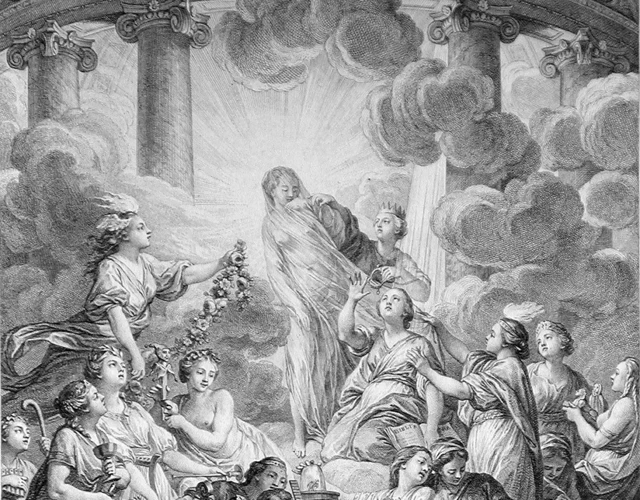
During the Enlightenment, democracy emerged as a powerful political ideal that challenged the prevailing systems of monarchy and aristocracy. This intellectual movement, which spanned the 17th and 18th centuries in Europe, brought forth a new wave of philosophical thought that emphasized reason, individualism, and liberty. Influential thinkers such as John Locke, Voltaire, and Jean-Jacques Rousseau championed the principles of democracy, advocating for the rights and freedoms of the individual. The Enlightenment philosophers argued that power should stem from the consent of the governed, rather than being inherited or bestowed upon a select few. Their writings and ideas laid the groundwork for the belief in popular sovereignty and the idea that the people should have the right to participate in the decision-making process. The concept of natural rights, which asserted that all individuals possess inherent rights such as life, liberty, and property, became a fundamental tenet of democratic thought. The Enlightenment also sparked important discussions on the separation of powers, with philosophers like Montesquieu proposing the idea of dividing governmental authority into three branches – executive, legislative, and judicial – to prevent the concentration of power. These ideas of democracy as a political ideal spread throughout Europe, inspiring revolutions and movements for political change. For example, the American Revolution in the late 18th century drew heavily upon Enlightenment principles and resulted in the establishment of the United States, with its own democratic institutions and a constitution that protected the rights of its citizens. This period marked a significant turning point in the history of democracy, as it solidified the belief that the power to govern should reside in the hands of the people. The Enlightenment’s commitment to reason, equality, and individual rights laid the foundation for the modern democratic systems that many nations embrace today. It stands as a testament to the enduring influence of ideas and the power of intellectual movements to shape the course of history.
The American Revolution: Democracy in Modern Governance
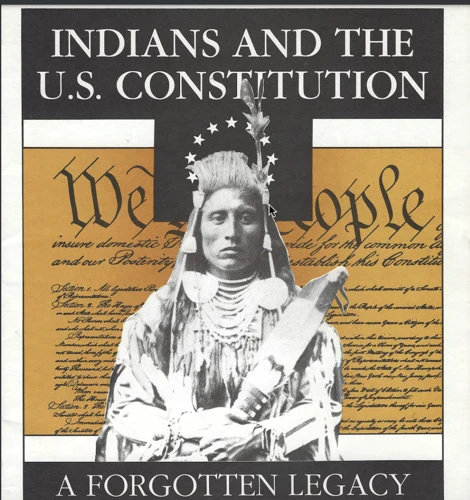
The American Revolution marked a pivotal moment in history, not only for the birth of a new nation but also for the advancement of democracy in modern governance. The revolution, which took place from 1775 to 1783, was fueled by the desire of the American colonists to liberate themselves from British rule and establish a government that truly represented the will of the people. Inspired by the ideals of the Enlightenment, such as individual rights and popular sovereignty, the American revolutionaries sought to create a system that would safeguard the freedoms and liberties of its citizens. The Declaration of Independence, written by Thomas Jefferson in 1776, solidified the values and principles upon which the new nation would be founded. It proclaimed that “all men are created equal” and that they possess inherent rights to “life, liberty, and the pursuit of happiness.” This concept of natural rights formed the basis for the American democratic experiment. The revolutionaries also established a system of representative democracy, in which elected officials would make decisions on behalf of the people. The United States Constitution, ratified in 1788, further solidified the democratic principles and established a framework for the separation of powers, checks and balances, and the protection of individual rights. The Constitution also introduced the Electoral College system, a crucial component of the democratic process in electing the President. The American Revolution served as an inspiration to many around the world, igniting movements for independence and democratic governance in various regions. The revolutionary spirit and ideals of democracy continued to evolve and shape the modern world, influencing the French Revolution and inspiring future democratic movements. The impact of the American Revolution was not confined to a single moment in history; it laid the foundation for the ongoing development and refinement of democratic systems, both within the United States and beyond its borders. The struggle for democracy in the American Revolution and the subsequent establishment of democratic structures paved the way for a new era of governance that prioritized the voices and rights of the people. Democracy became a transformative force, allowing individuals to participate in shaping their society and holding their leaders accountable. The legacy of the American Revolution as a beacon of democracy endures to this day, reminding us of the power of popular sovereignty and the pursuit of freedom and equality.
19th Century and Beyond: The Global Spread of Democracy
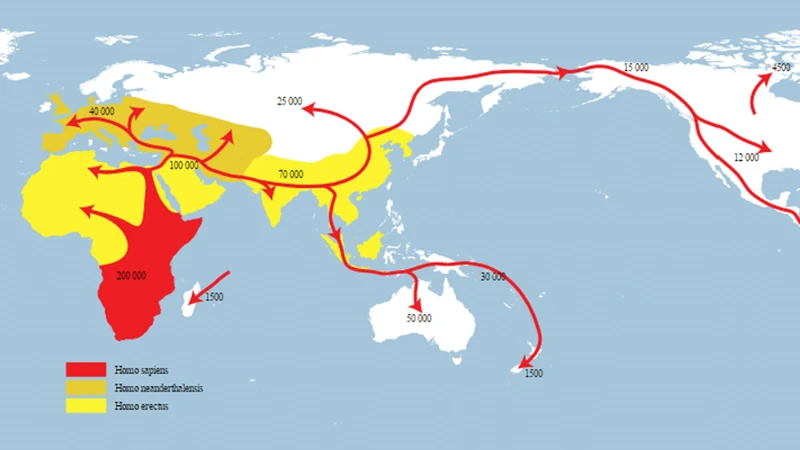
In the 19th century and beyond, democracy began to spread across the globe, as people yearned for greater political participation and human rights. This era witnessed significant movements and events that furthered the reach and influence of democratic ideals. One key development was the wave of revolutions that swept through Europe, such as the French Revolution in 1789, which toppled the monarchy and established a republic. These revolutions sparked a wave of political reform and inspired other nations to strive for democratic governance. The spread of democracy was not limited to Europe alone. In the United States, the abolitionist movement and the Civil War led to the Emancipation Proclamation and the eventual granting of voting rights to African American men through the Fifteenth Amendment. Women’s suffrage movements emerged around the world, with pioneers like Susan B. Anthony and Emmeline Pankhurst leading the fight for gender equality and the right to vote. The 20th century witnessed further progress in the spread of democracy, with the establishment of democratic governments in Latin America, the decolonization movements in Africa, and the collapse of communist regimes in Eastern Europe. The role of the United Nations in promoting human rights and democracy cannot be understated, as it became a platform for nations to uphold democratic principles and advocate for collective action. Despite the challenges and setbacks faced by democratic movements, the global spread of democracy in the 19th century and beyond signifies a growing belief in the inherent value of individual freedom, equality, and citizen participation in shaping the course of nations. The quest for democracy continues to evolve, reflecting the collective aspirations of people worldwide for inclusive and just societies. It is a testament to the enduring power and appeal of the democratic ideal.
Challenges and Criticisms to Democracy

Challenges and criticisms to democracy have been prevalent throughout history, raising important questions about the effectiveness and limitations of this political system. One of the main challenges is the potential for majority tyranny, where the will of the majority disregards the rights and needs of minority groups. Critics argue that this can lead to the suppression of dissenting voices and the marginalization of certain populations. Another criticism focuses on the issue of voter apathy and low political participation, which can undermine the legitimacy of democratic institutions. Skeptics also question whether democracy is truly representative, as elected officials may not accurately reflect the diverse perspectives and interests of the population they serve. Campaign financing and lobbying practices can result in unequal influence and access to decision-making processes, raising concerns about the influence of money on democratic outcomes. The rise of populism and demagoguery poses a threat to democratic values, as charismatic leaders can manipulate public opinion and undermine democratic norms. Some argue that direct democracy through referendums can also be problematic, as complex issues may be oversimplified and decided by uninformed voters. It is important to acknowledge these challenges and criticisms to democracy as they provide avenues for improvement and ensure the continuous evolution of democratic systems. By addressing these concerns through reforms that enhance inclusivity, promote transparency, and strengthen the protection of individual rights, democracies can strive to become more resilient and responsive to the needs of their citizens.
Conclusion

In conclusion, the origins of democracy can be traced back to Ancient Athens, the birthplace of this transformative form of governance. The Athenian experiment laid the groundwork for the principles of citizen participation and political equality that continue to shape democratic systems around the world today. From the direct democracy of Athens, where citizens actively engaged in decision-making, to the influence of direct democracy in the Roman Republic, the emergence of representative democracy in Medieval Europe, and the ideals of democracy during the Enlightenment, the concept of democracy has evolved and adapted over time. It found its modern manifestation in the American Revolution and continued to spread globally in the 19th century and beyond. However, democracy is not without its challenges and criticisms. It faces ongoing debates about its efficacy, inclusiveness, and the role of money and influence. Nonetheless, the core principles of democracy, including the rule of law, political participation, and protection of individual rights, continue to resonate in societies around the world. The journey of democracy, from its ancient origins in Athens to its present-day manifestations, is a testament to the enduring power of citizen engagement and the pursuit of collective decision-making. As we reflect on the origins of democracy, we are reminded of the ongoing need to uphold and nurture these principles for the betterment and progress of societies globally.
Frequently Asked Questions

1. How did democracy emerge in Ancient Athens?
Democracy emerged in Ancient Athens through a series of political reforms and the active participation of its citizens. Reforms by statesmen like Solon and the leadership of figures like Pericles played a crucial role in shaping the democratic system.
2. What were the key features of Athenian democracy?
Key features of Athenian democracy included direct citizen participation, the right to vote, propose laws, and serve on juries. The Council of 500 and the Assembly provided platforms for citizens to voice their opinions in public affairs.
3. Who were considered citizens in Ancient Athens?
In Ancient Athens, only adult male citizens who were born in Athens and had completed military service were considered full citizens. Women, slaves, and foreign residents were excluded from the political process.
4. How did the reforms of Solon contribute to the establishment of democracy?
Solon introduced reforms in the 6th century BCE that expanded political participation in Athens. These reforms laid the foundation for democratic principles and included measures such as debt relief, opening up public offices to more citizens, and redistributing political power.
5. How did Pericles contribute to the development of Athenian democracy?
Pericles, a prominent statesman of Athens, strengthened Athenian democracy during his leadership in the 5th century BCE. He implemented measures such as paying salaries to public officials, which enabled wider citizen participation regardless of social class.
6. Was Athenian democracy inclusive?
No, Athenian democracy was not fully inclusive. It excluded women, slaves, and foreign residents from participating in the political process. Only adult male citizens who met specific criteria had political rights.
7. How did Athenian democracy influence modern democratic systems?
Athenian democracy served as a model and inspiration for later democratic systems. Its emphasis on citizen participation, the idea of popular sovereignty, and the notion of political equality influenced the development of democratic ideals worldwide.
8. What was the significance of the Assembly in Athenian democracy?
The Assembly was a crucial institution in Athenian democracy. It was where citizens gathered to discuss and debate important issues before making decisions through voting. The Assembly was the heart of citizen participation, shaping the course of Athenian politics.
9. Were there limitations to democracy in Ancient Athens?
Absolutely, democracy in Ancient Athens had limitations. It excluded women, slaves, and foreign residents from political participation, and power was concentrated in the hands of the citizens. This limited the scope of democratic governance in terms of inclusiveness.
10. Why is the birth of democracy in Ancient Athens significant?
The birth of democracy in Ancient Athens is significant because it marked the first known establishment of a democratic system in human history. It laid the foundation for the development of democratic ideals and had a profound influence on the evolution of political systems worldwide.
References
Frequently Asked Questions

1. How was democracy born in Ancient Athens?
Ancient Athens is widely regarded as the birthplace of democracy. In the 5th century BCE, Athenian citizens participated directly in the decision-making process, gathering to debate and vote on laws and policies.
2. What role did the Roman Republic play in the development of democracy?
The Roman Republic introduced elements of direct democracy through assemblies and the election of officials by the people. Although limited to male citizens, this system influenced later democratic models.
3. When did representative democracy first emerge in Medieval Europe?
Representative democracy began to emerge in Medieval Europe with the establishment of institutions such as parliaments and estates, where noble and wealthy individuals would represent the interests of their communities.
4. How did the Enlightenment shape the concept of democracy?
The Enlightenment period in the 18th century saw the rise of democratic ideals. Thinkers like John Locke and Jean-Jacques Rousseau emphasized the importance of individual rights, consent of the governed, and the social contract between citizens and government.
5. What impact did the American Revolution have on democracy?
The American Revolution of 1776 led to the establishment of the United States as a democratic republic. The Declaration of Independence and the Constitution became influential documents that championed individual liberties and the principles of democratic governance.
6. How did democracy spread globally in the 19th century and beyond?
The 19th century witnessed a wave of democratization as various countries granted suffrage rights to broader segments of their populations. This democratization movement continued throughout the 20th century with the fall of colonial empires and the end of authoritarian regimes.
7. What are some of the challenges to democracy?
Challenges to democracy include issues like voter apathy, corruption, and the concentration of wealth and power. Additionally, political polarization, social inequality, and threats to individual freedoms can undermine democratic values.
8. Is democracy the only valid form of government?
No, democracy is not the only valid form of government. Different societies have experimented with various systems of governance that suit their unique historical, cultural, and political contexts. However, democracy offers the potential for widespread participation and protection of individual rights.
9. What are some criticisms of democracy?
Critics argue that democracy can result in a tyranny of the majority, where minority voices and rights are not adequately protected. Some believe that democratic processes can be slow and inefficient, and that elected officials may not always act in the best interests of the people.
10. Can democracy adapt to the challenges of the modern world?
Yes, democracy has proven to be adaptable throughout history. Innovations in technology and communication provide opportunities for increased citizen engagement and government transparency. However, it requires ongoing efforts to address emerging challenges and ensure the inclusivity and effectiveness of democratic systems.






